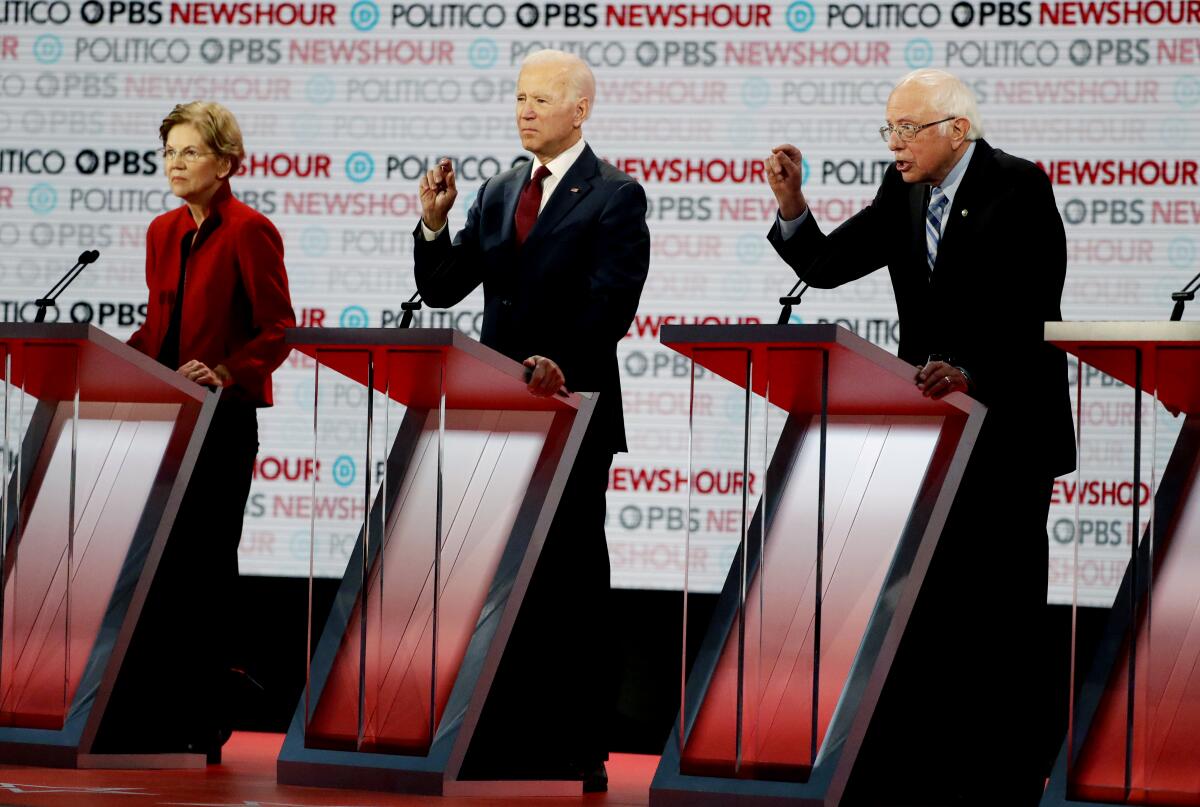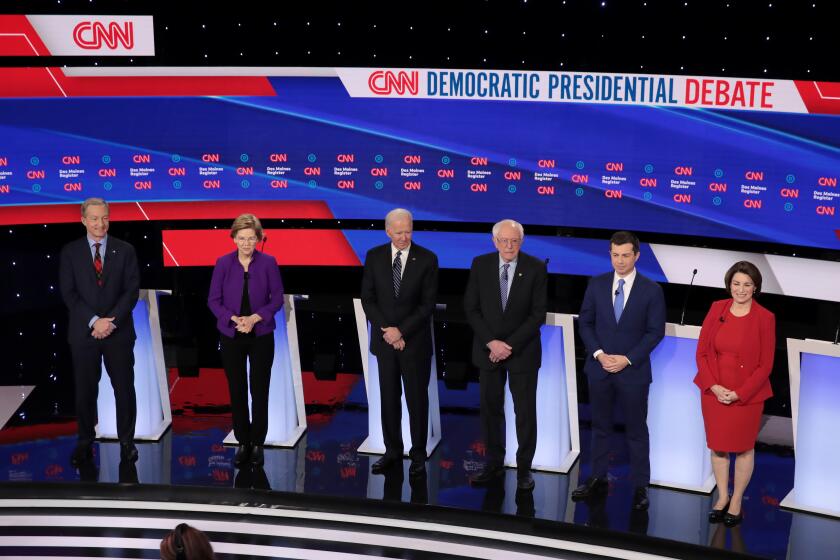Sanders, Biden and Warren in three-way race in California as primary nears, poll shows

- Share via
A California poll of likely Democratic voters found that no one presidential candidate is dominating the contest, leading to a three-way race that could easily change in the seven weeks before the March 3 primary election.
The survey, conducted by the Public Policy Institute of California, found that among likely Democratic primary voters, Sen. Bernie Sanders of Vermont led with 27%, while former Vice President Joe Biden and Sen. Elizabeth Warren of Massachusetts followed with 24% and 23%, respectively. The rest of the field remained in the single digits.
“It literally could not be any tighter,” Dan Newman, a neutral Democratic strategist, said of the poll.
“Even people who have a favorite right now, I wouldn’t be surprised if they changed their minds,” depending on the performance of their preferred candidate in the coming weeks, Newman said.
In September, a survey conducted for the Los Angeles Times found Warren with a significant lead in California over her rivals. But a Times poll in December showed that Biden and Warren lost ground in the state as Sanders took a small lead.
The institute’s recent poll showed signs that more California voters had settled on a candidate compared to voters in Iowa, who face a barrage of candidate appearances and advertising over an extended period of time, said Democratic strategist Bill Carrick, who is unaffiliated in the race.
Less than three weeks before Iowa begins the presidential balloting, six Democrats took to the stage for the first debate of the new year and the last before voters begin having their say.
“You’d think that would lead one to make up their mind,” he said, “but that’s clearly not happening as quickly as it is here in California.”
The institute also asked voters which candidate they believed had the best chance to beat President Trump, and 46% of likely voters favored Biden. Among younger voters 18 to 44, 39% saw Sanders as the most viable candidate. Biden led with 56% support with those 45 and over.
Convincing voters that he is the candidate who can beat Trump is the “bedrock” of Biden’s candidacy, Carrick said, and it’s a trend that continues in the state.
Notably, Biden is favored in Los Angeles, with 30% of Angelenos’ support. His popularity could be due to the time he has spent here over the yearsadvocating for local issues such as raising the minimum wage, Carrick said.
Other candidates outside of the top three, he said, are at a disadvantage to win support in a state with a complex electorate that changes by region and demographic. California is not a winner-take-all state when it comes to its 495 delegates, which are allotted on a proportional basis by congressional district to any candidate who gets at least 15% of the vote. In a tight race, every delegate counts, presenting a challenge for candidates such as former South Bend, Ind., Mayor Pete Buttigieg, who received 6% support from likely voters.
The poll listed only the five candidates who had qualified earlier this month for Tuesday’s debate — the top three plus Buttigieg and Sen. Amy Klobuchar of Minnesota, who came in fifth with 4%. (Former hedge fund manager Tom Steyer, who did not qualify for the debate until Friday, got 1% from voters who volunteered his name.)
Former New York Mayor Michael R. Bloomberg, who flooded the state with television ads, was also not included. He received 1% from respondents who offered up his name.
“It’s just a really complicated place,” Carrick said, “and it’s very hard to get known here.”
The PPIC surveyed 530 likely Democratic primary voters Jan. 3-12, and the sampling error is plus or minus 6.5%.
More to Read
Get the L.A. Times Politics newsletter
Deeply reported insights into legislation, politics and policy from Sacramento, Washington and beyond. In your inbox twice per week.
You may occasionally receive promotional content from the Los Angeles Times.












